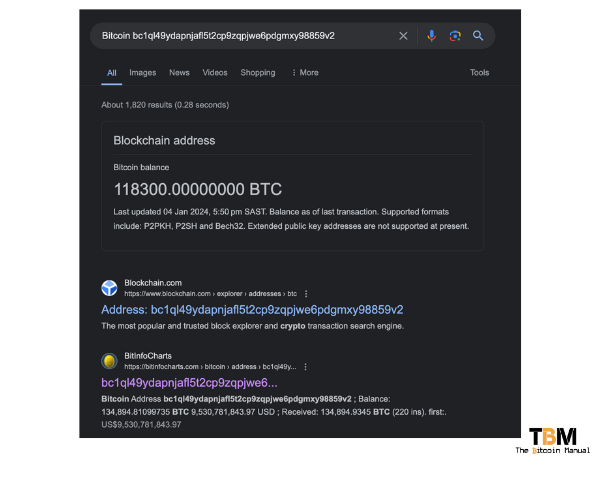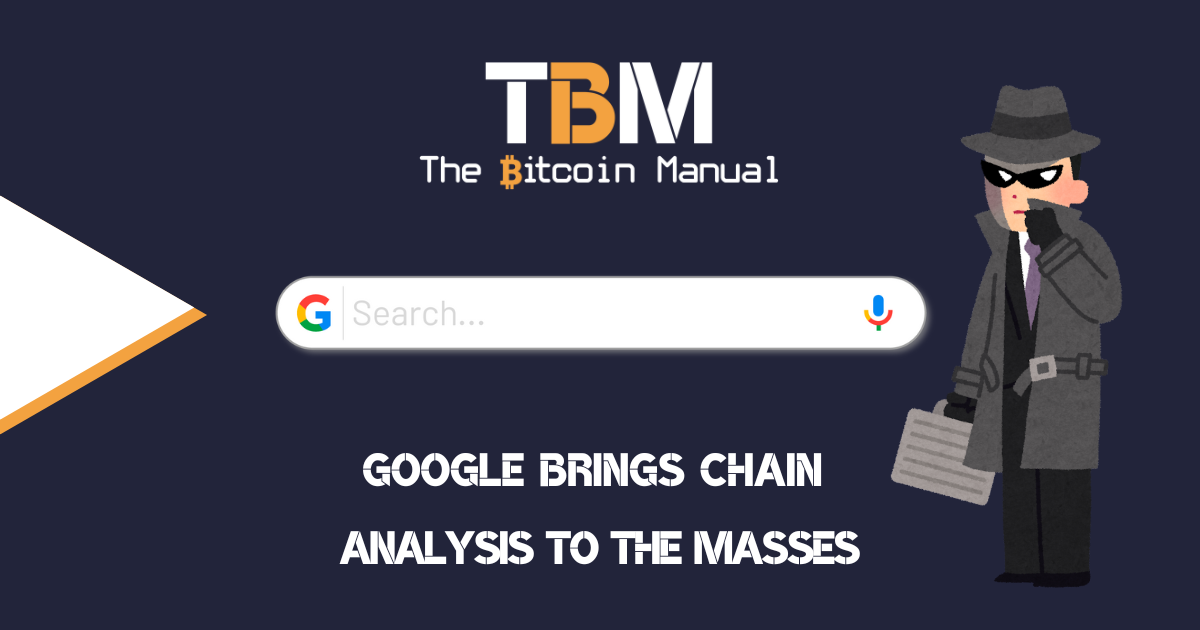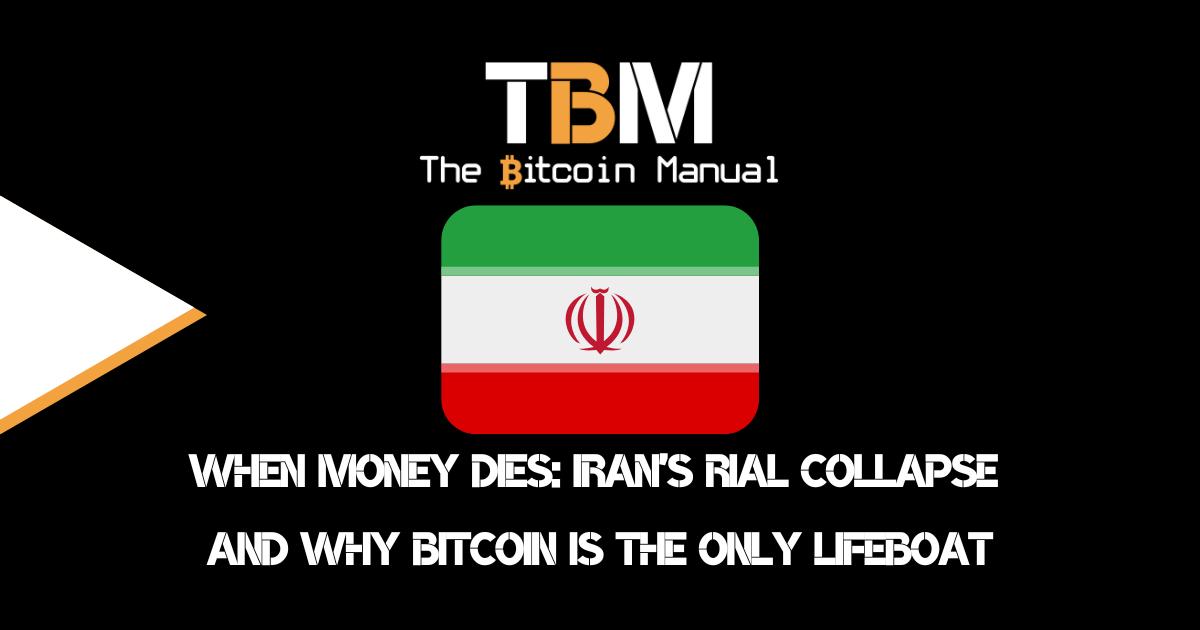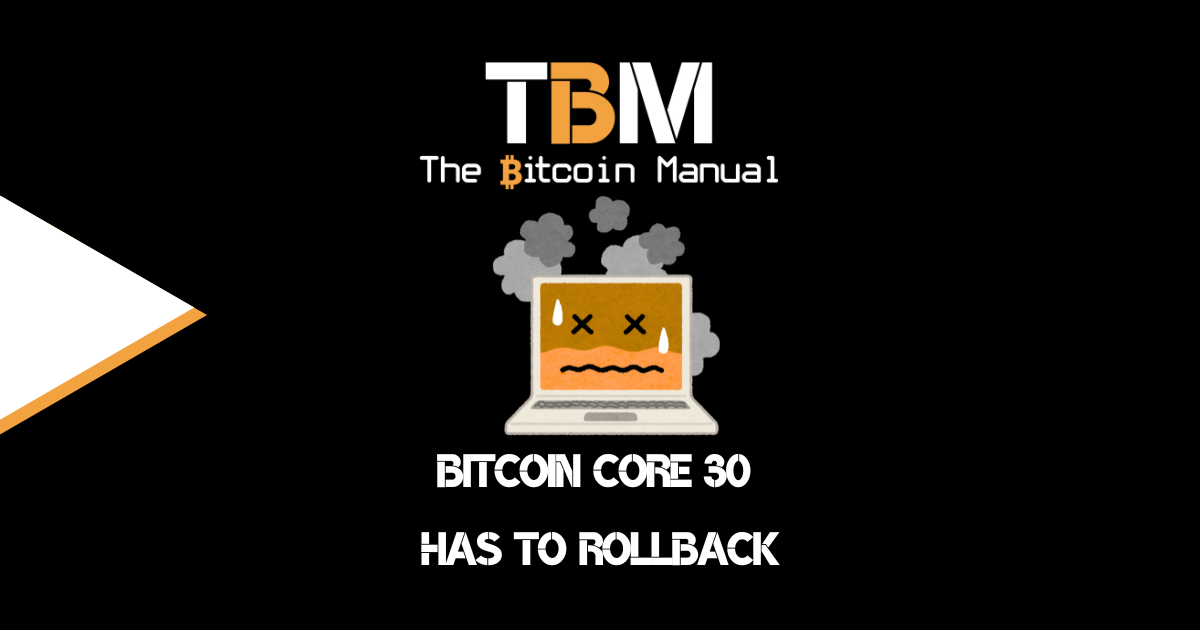Google is dipping its toes into some blockchain data, specifically the Bitcoin blockchain! That’s all I am interested in, but they’re also supporting Google’s indexing for five EVM-compatible networks: Arbitrum, Avalanche, Optimism, Polygon, and Fantom.
This move signifies a considerable attitude shift in how Google deals with Bitcoin. Previously, Google was hostile to the industry, going so far as to ban Bitcoin-related ads in 2018. Now that the suits like it and you can purchase a regulated product in the spot ETF, Google looks to do a 180.
In January 2024, Google started allowing partial access to its ad network for Bitcoin-related ads, and now it’s looking to integrate on-chain data into its search experience.
Google has always had Bitcoin data
If you’re a Google Cloud user, you’ll know that the Bitcoin blockchain is part of its public data set. Users can extract any information from this node and pull it into an SQL database within their account using Big Query.

Alternatively, you can connect the cloud API to any data visualisation tool they like and analyse the data on-chain. Google hosts a bunch of blockchain data in its public data sets, from Solana, Bitcoin Cash, Litecoin and more, so in theory, they could roll out any of these chains in a second if they wanted to, but they’re probably testing the water for now.
Data availability is one thing, but keeping this information locked behind the need to create your own SQL queries is a step too far for most people, even with the help of ChatGPT, so you can safely say very few people are looking at this information.
But what if Google gave you an easier way to access it, a way that anyone could query the current state of on-chain data and get a result?
That’s what Google has started to roll out with its latest rich snippet feature.
What does this mean?
Traditionally, Google’s search engine relies on crawling and indexing websites. But the Bitcoin blockchain isn’t a website; it’s a distributed public ledger.
So, how does Google plan to navigate this new frontier? They’re starting to add the Bitcoin blockchain into their search index and return results based on the chain command and a corresponding public key.
When a user adds a chain name, IE, Bitcoin + a public address, Google will return a rich snippet; those instant answer summaries will be displayed directly in search results.
Instead of going to your preferred block explorer, Google is adding another zero-click result to its arsenal, which will likely reduce the traffic that would have gone to these public block explorers.
If that is your business model, allowing users free access to explore chains data on your site and rendering ads on page views, you might see an impact in revenue if this feature rolls out globally and users start to take to it.

How does it work?
We all use Google to do a little stalking occasionally; maybe it’s your crush, an ex-partner, or your favourite celebrity. I don’t know what your kink is; people use search to do all kinds of snooping.
Now, if that person has publicly posted a Bitcoin address or you’ve found one tied to that person, you can quickly check the status without running a node or visiting one of those strange blockchain sites.
All you’d need to do is paste in the public key, and a rich snippet will appear with details like:
- Transaction hash
- Block number and timestamp
- Input and output addresses
- Transaction value
This expands blockchain analysis to the normie, and now your boss, wife, or wife’s boyfriend can interact with and understand Bitcoin transactions. No more deciphering complex blockchain addresses or scouring block explorers for information. Google would present the data in a clear, concise, and user-friendly format.
It’s worth noting that you are trusting a third party in Google, and you’re not verifying the exact data on-chain as you would if you wasted the time to download all 500+ GBs of blockchain data to your computer, so the accuracy of the data can be questionable.
Having conducted a few searches myself, I’ve noticed that:
- The dataset is outdated (dating back to January ’24).
- As you can see, not all address types are supported, with only P2PKH, P2SH and Bech32 rendering the snippet. Extended public key addresses are not supported at present.
Potential challenges of pushing B
While Google indexing Bitcoin blockchain data presents new possibilities for normalising Bitcoin with the general public, there are also potential challenges to consider:
- Data Accuracy: Ensuring the accuracy of indexed blockchain data is crucial. Google will need robust mechanisms to filter out spam or erroneous transactions.
- Scalability: The Bitcoin blockchain is constantly growing. Can Google’s system efficiently handle the ever-increasing amount of data?
- Privacy Concerns: How will Google balance data accessibility with privacy considerations, especially for personal wallet transactions?
Now think about what it means for @google to be indexing all of #Bitcoin transaction activity.
— Wasabi Wallet (@wasabiwallet) March 28, 2024
It is a public ledger, so it was bound to happen. Google has so much extra data they can link to your stack.
Protect yourself & your family, and reclaim your privacy with coinjoins. https://t.co/wpyNBosy1E
Take a beat on self-Googling
Who among us has not Googled ourselves to see what it would show? I know I am guilty of it; many of us are, and what’s worse is that we treat Google as if it’s a private place for us to place our deepest and darkest thoughts into its database.
Google already collects a metric tonne of your data, from interests to user behaviour, and it’s constantly looking for more. If they’re not sourcing your search history, they’re looking at the sites you visit, the content you interact with, the YouTube videos you watch, the sites you sign in and out of, the brands you communicate with via Gmail, and so much more.
By putting your Bitcoin address into Google, you’re tying your browser and Gmail to your on-chain activity. Do you want Google to know about your financial history, too?
Targeted Advertising
This is a big one. Google makes a significant portion of its revenue from advertising. By understanding your interests and online behaviour, they can connect you with ads more likely to resonate with you.
This increases the effectiveness of advertising for both businesses and users (ideally!)
If they can attribute your Gmail or browser to a Bitcoin address, they can filter users by their bank balance and auction off those data points to the highest bidder. Advertisers are desperate to find users with a disposable income and are all too happy to pay a premium for access to those newly rich Bitcoin bros.
Understanding search trends
Google is one of the top providers and exploiters of big data. The vast amount of data Google collects helps it understand what people are searching for and how trends evolve over time.
This allows it to refine its search algorithms and provide the most relevant results possible; being able to track how your wealth fluctuates is one hell of an attractive data point.
Think about it:
If you’re a new Bitcoiner and you’re down 50%, don’t be surprised if you’re getting ads for BetterHelp or some antidepressant.
Inversely, if your balance is mooning, luxury goods, travel and other high-ticket items would love to wash over your screen through the Google ad network. Yes, you with the big bags, you are now a prized commodity for Google and its hoard of advertisers.
Take it from me: I work in digital marketing!
Public keys and prying eyes
Google’s foray into indexing Bitcoin blockchain data signifies a growing recognition of the importance of blockchain technology. However, this move could have far-reaching implications beyond Bitcoin, potentially influencing how search engines handle other decentralised data structures.
Along with how the general public and even criminals handle accessing this information, OPSEC has always been important for a Bitcoiner.
However, as blockchain data access expands to more people, keeping your stash a secret is more critical than ever.




